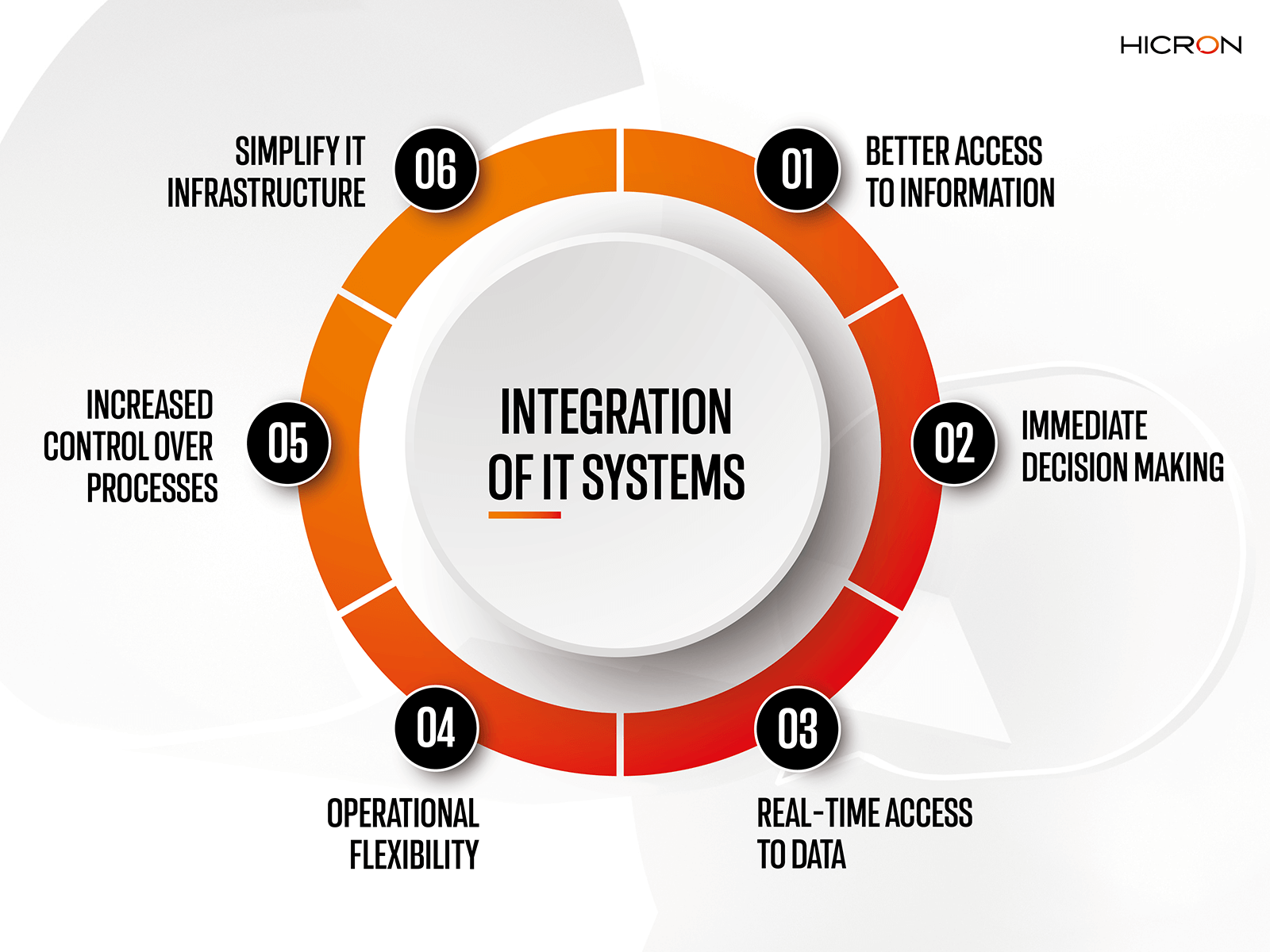What is ERP and IT systems integration?
Systems integration is the process of connecting these systems so that they function as a cohesive whole. This enables seamless data exchange between individual databases, applications, networks, and services. As a result, an organization’s IT resources are better organized and work more efficiently.
What is ERP and systems integration? Enterprise Resource Planning (ERP) software is used to automate business functions and increase operational efficiency. It covers key business processes and facilitates their management within an integrated system. A perfect example of a modern ERP is the SAP system, which consists of integrated, communicating modules focused on specific business areas.

Integration of IT systems in practice
Integrating business processes into one system centralizes data management, increases the ability to adapt to market changes, and provides a competitive advantage. Implementing an advanced ERP system helps reduce errors and eliminates the risk of data inconsistencies. In this process, the requirements of the industry and the specific needs of the company can be taken into account to create an IT solution tailored to a given organization.
Integrating IT systems is a way to simplify an organization’s IT infrastructure. Sharing a database within an integrated ERP system ensures better access to information and enables immediate decision making. Real-time access to data ensures operational flexibility. It also increases control over processes.
The SAP system can also be integrated with other systems used in a company. This can be done by writing appropriate code, but the connection can also be configured using integration platforms, which provide greater control over the data flow. SAP Integration Suite is an example of such a platform, providing pre-built integrations or API management tools, and enables the integration of processes, services, applications, and data in the cloud and on company servers.
IT systems integration – for greater operational efficiency
Integrating different areas of company operations through the use of an ERP system allows you to create a cohesive business environment. The greatest benefits of implementing an enterprise resource planning solution are process optimization, improved resource management efficiency, and the ability to respond quickly to changes.
You already know what ERP and systems integration is and the benefits of its implementation. There are many methods of implementing ERP. The choice of implementation method depends primarily on the needs of a given company. Public cloud, private cloud, on-premises, or a hybrid option? Modern ERPs integrate with systems via API, ESB, or iPaas. It is worthwhile to delve deeper and learn more in order to provide your company with the best conditions for development and to increase its chances of success in the market.





